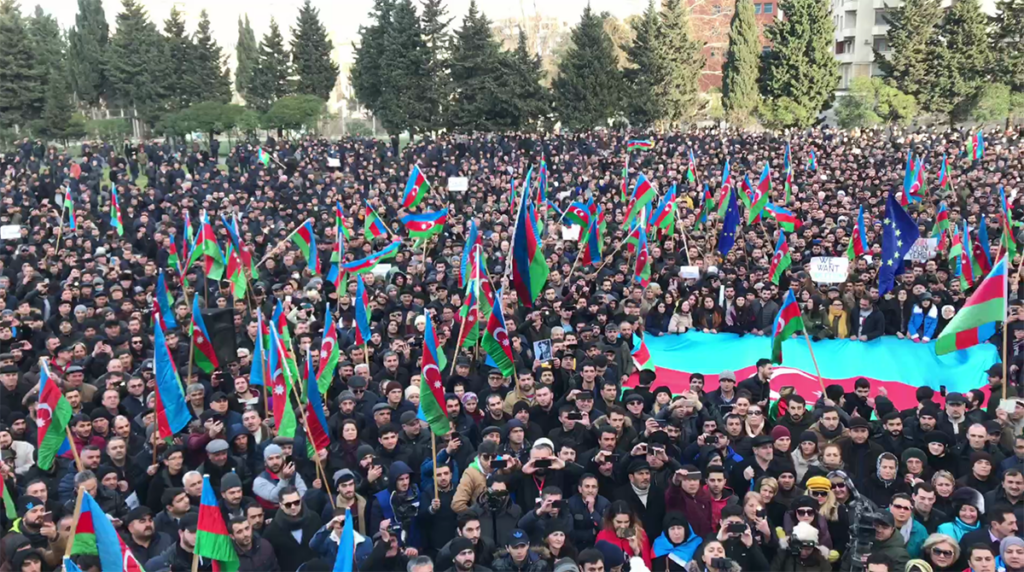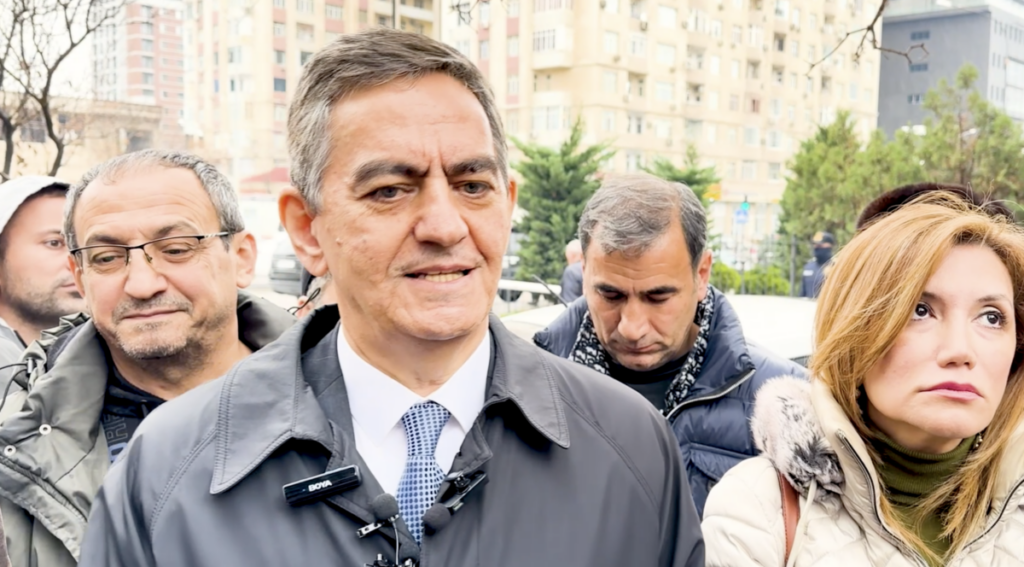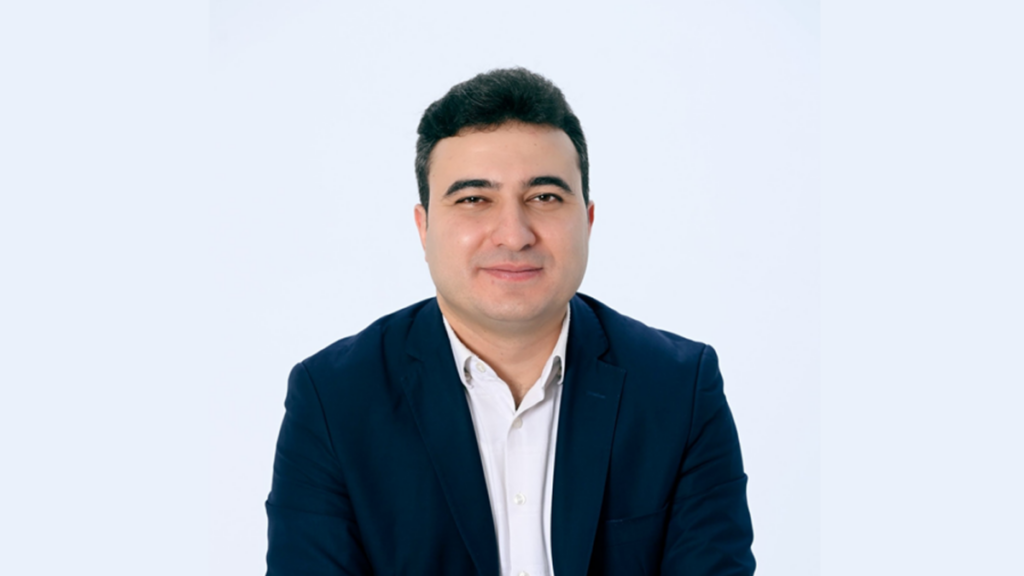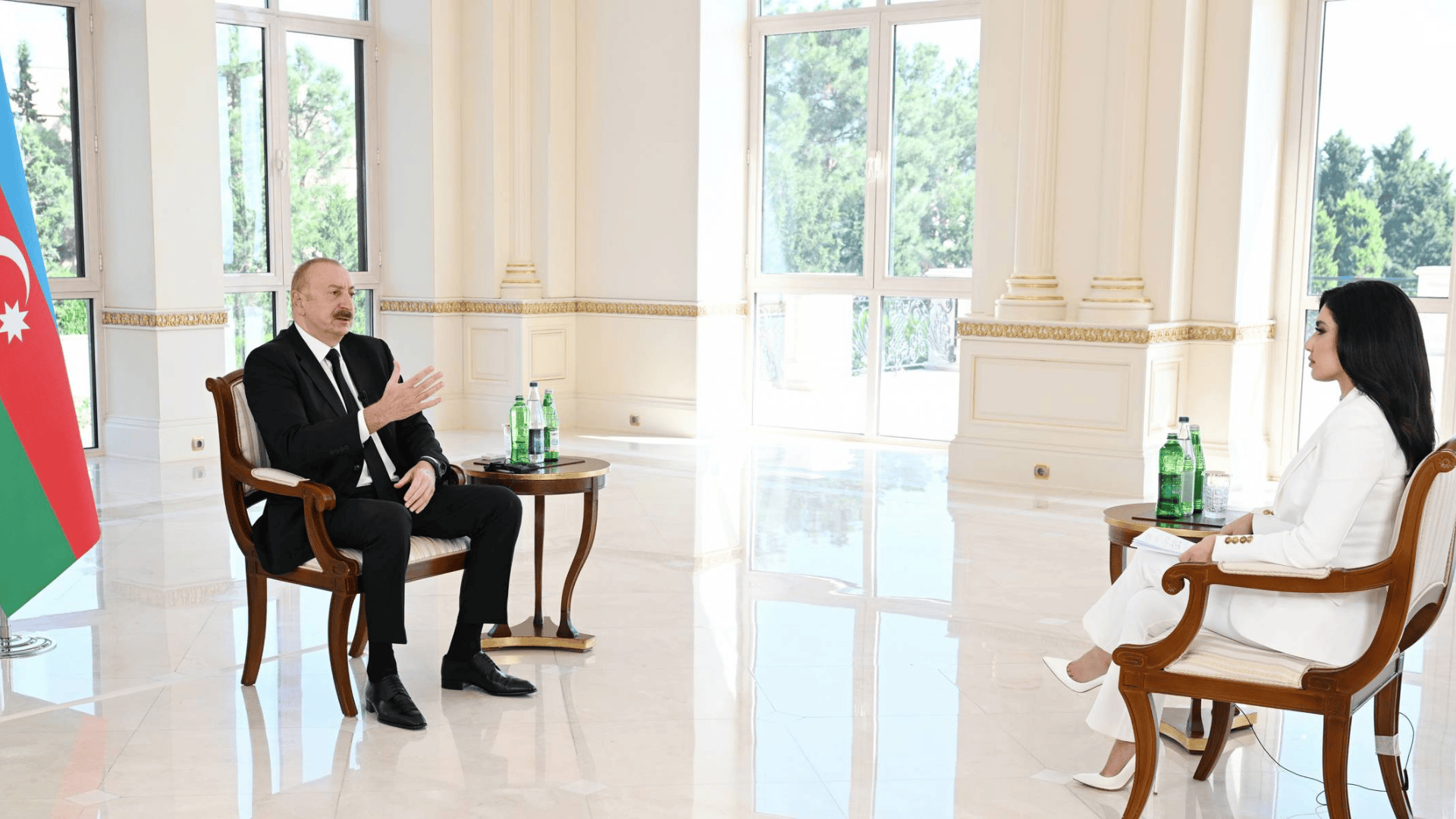How political protest in Azerbaijan has changed: a history of repression
Protests in Azerbaijan
In recent years, the picture of political protests — and protests in general — in Azerbaijan has changed dramatically. The last major rally took place at the Mehsul Stadium (part of the Yasamal Sports and Wellness Complex) in January 2019. Since then, for six years, the country has not seen a single large-scale protest.
This is no coincidence: political leaders, lawyers and civil society representatives say it reflects both changes in legal mechanisms and the government’s long-term political strategy. Their views, together with international legal standards and the key events that have unfolded in Azerbaijan in recent years, are presented in this article by JAMnews partner Meydan TV.
The January 2019 rally: a point of no return
Ali Karimli, chair of the Azerbaijan Popular Front Party (APFP), has long been at the forefront of political protests in the country. He has organised more than a hundred rallies, marches, pickets and other actions against the authorities.
Here is how he recalls the last rally at Mehsul Stadium in January 2019, where demonstrators demanded the release of political prisoners:

“At that time, a second criminal case was opened against Mehman Huseynov [a well-known Azerbaijani blogger]. Our rally was held to demand his release and the release of all other political prisoners. When the rally grew large, the Azerbaijani authorities panicked and closed Mehsul Stadium without offering any alternative venues. That was how even the minimal freedom of assembly was eliminated in Azerbaijan.”
This rally became one of the largest in Azerbaijan in recent years. By different estimates, around 30,000 people gathered. Its success was largely linked to the popularity of blogger Mehman Huseynov, whose release the protesters were demanding. According to Ali Karimli, every application to hold a rally since then has been rejected.
The key difference between the January rally and earlier ones was that mass administrative arrests and police summons took place not only before but also after the protest. The country’s main mobile operators handed police data on people who were in the area. As a result, participants — and even passersby — were summoned to local police stations for “preventive talks.”
No more Mehsul
The traditional protest site, Mehsul Stadium (its name means “harvest”), was closed for renovation. Baku does have other designated places for rallies and marches. However, whenever the opposition applies to hold events in the city centre — for instance, in the squares near the “28 May” or “Narimanov” metro stations, both usually crowded — Baku city authorities always respond the same way:
“Due to heavy pedestrian and traffic flows, holding gatherings in these areas would cause congestion and infringe on citizens’ right to free movement.”
Instead, they are offered the stadium in Lokbatan, a settlement 24 km from Baku.
Ali Karimli reflects on the past six years, during which rallies have been effectively banned:

“Over these six years, hundreds of people have been arrested: opposition activists, civil society figures, journalists. Almost all independent journalists have ended up behind bars. The same has happened to NGO activists. An atmosphere of fear has been created in society. Freedom of assembly is completely banned. For five of these six years I have lived under an internet blockade.”
The APFP and the National Council of Democratic Forces (the main opposition alliance) last applied to hold a rally on 18 April this year. Once again, the opposition demanded the release of political prisoners, measures to fight poverty and the introduction of child benefits. Baku city authorities rejected the request, citing the same reasons as before.
The opposition leader explains why the authorities refuse to allow rallies:
“They fear peaceful protests because they know the people are dissatisfied. Yes, they have managed to weaken the opposition. The opposition is not made of stone or iron. Repression, restrictions, lack of funding — under such conditions, of course, the ranks of the opposition thin out. But the people move into invisible opposition. They are destroying formal political institutions, but in return they are getting an invisible opposition that is becoming even stronger.”
Post-war changes: tightening control
Araz Aliyev, co-founder of the “III Republic” Platform and a political activist, believes that the starting point for changes in Azerbaijan’s political system was the 44-day war of 2020, which restored the country’s territorial integrity. In his view, against the backdrop of regained sovereignty, the situation with human rights and democracy — including freedom of assembly — has only worsened:

“If we look at the past five years, protest activity has almost disappeared. Before the war and in the first post-war years, there were many demonstrations in Azerbaijan involving the opposition and civil society. People could gather at Fountain Square and other places to express their dissent.
But after the war, the situation changed. Global factors also played a role: Russia’s war in Ukraine, the possible impact of external developments, like Trump returning to power. As a result, the protest environment in Azerbaijan today is almost completely suppressed. If before you could go out with a poster or a sticker, now that will almost certainly lead to arrest.”
Changes in the legal environment: from notification to permission
In many democratic countries, holding a rally does not require permission from the executive authorities. Azerbaijan’s 1998 Law on Freedom of Assembly also required only that the authorities be notified of rallies, actions, pickets, marches and demonstrations. The purpose of notification was to ensure the safety of participants and prevent clashes.
However, lawyer Samed Rahimli points out that although freedom of assembly is formally guaranteed by the Constitution, changes in legislation have in practice restricted this right:

“Initially the law was fairly general and did not contradict the Constitution. But over time it was tightened through numerous amendments. In 2005, after long debates over whether permission was needed or notification was enough, the Constitutional Court ruled that notification actually meant approval. Then came the issue of designated venues — the list was set by Baku city authorities, often in remote, inconvenient areas on the outskirts of the city.
Freedom of assembly is not just about like-minded people gathering but about attracting wider public attention, including from those who disagree with you. Yet the authorities systematically refused to allow protests in the city centre, suppressing them not only with arrests but also through changes in law.”
Rahimli points out that in 2011, legislation was amended to toughen penalties for unsanctioned rallies. Fines were raised and participants began receiving up to 30 days’ administrative detention. Conditions under administrative detention were often harsher than in ordinary prisons:
“By the mid-2010s, protest activity had almost stopped because of the tough sanctions. Organisers were charged with ‘minor hooliganism’ or ‘disobeying police’ and faced criminal cases.”
Protests by ordinary citizens
Although opposition parties cannot hold rallies or unauthorised demonstrations, ordinary citizens still take to the streets over issues ranging from the environment to labour exploitation.
One striking example was the protests in Soyudlu village (Gadabay district), where residents opposed the dumping of toxic waste from a gold mine into a local lake. The protest was violently dispersed by police, and later president Ilham Aliyev said the demonstrators behaved wrongly by throwing stones at officers.
Other examples include Baku taxi drivers boycotting work to demand shorter hours and better conditions, and delivery couriers protesting against pay cuts.
One participant in the Soyudlu protest initially complained:
“Let them come and see! Let them stand here for ten minutes — anyone would get dizzy. And what’s happening to our children?”
But later he posted an apology video on TikTok:
“They sent journalists who write lies against our state, against our people, against our president. Don’t believe those articles!”
A taxi drivers’ boycott organiser also released a video of repentance after being detained and questioned for several hours:
“We launched the ‘Stay at Home’ protest, but it was a mistake.”
“Trade unions are an arm of the regime”
Labour rights activist Nilufer Mammadrzaeva says intimidation of protesters and empty promises by the authorities are routine in Azerbaijan:
“The cancellation of the taxi drivers’ boycott after promises of help, the suppression of protests in different regions after the case of the underage pregnant girl — all this shows how intolerant the state apparatus is towards mass protests. The authorities use not only force but manipulation — false promises to maintain control.
These promises are usually symbolic. Taxi drivers were also promised something, but the systemic problems remained. In reality, this is a way of neutralising people’s influence. Azerbaijan has no independent trade unions — they’ve become part of the regime and don’t perform their functions. The lack of civil society, the pressure on activists — all this is a sign of authoritarianism.
The suppression of protests, whether boycotts or youth actions, shows how strong state control really is.”
Mammadrzaeva notes that while political rallies are banned, social protests continue. Online campaigns, petitions and hashtags spread widely and remain harder to control. As a result, protests are inevitably shifting to new forms:
“Social media has become the main platform for protest. After news of the underage pregnancy, young people across the country organised a campaign through WhatsApp, Instagram and other platforms. They coordinated, shared tasks — and many joined in. I think digital activism will only grow stronger.”
Politician Araz Aliyev also believes the authorities are uninterested in solving people’s problems, so spontaneous protests will continue:
“Most activists are either in prison, abroad, or silenced by pressure. But that doesn’t mean resistance has disappeared. The problems remain — people want to respond. In 2025, everyone has the internet, and when people see that a 13-year-old girl has been raped and then forced to give birth, they cannot stay silent. In the 21st century, it is very hard to rule people with medieval methods.”
International commitments and reality
Azerbaijan is a signatory to the European Convention on Human Rights (Article 11) and OSCE documents guaranteeing freedom of assembly. Yet, as Freedom House noted in its 29 February 2024 report Freedom in the World: The Growing Damage of Illegitimate Elections and Armed Conflict, and Amnesty International stated on 23 January 2025, in Azerbaijan this right is “systematically and continuously violated.”
The shrinking space for freedom of assembly in Azerbaijan calls into question not only the future of this right but of the country’s political culture as a whole.
With the support of Medianetwork



















